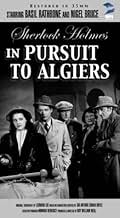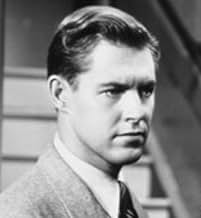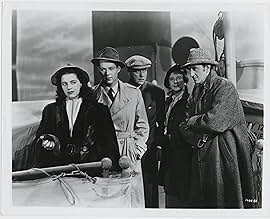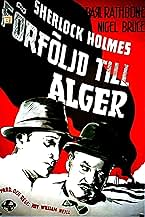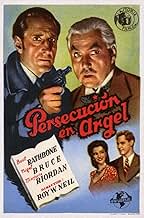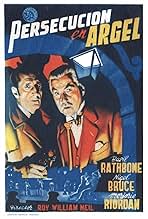IMDb RATING
6.7/10
4.4K
YOUR RATING
Holmes is recruited to escort the heir to a European throne safely back to his homeland after his father's assassination.Holmes is recruited to escort the heir to a European throne safely back to his homeland after his father's assassination.Holmes is recruited to escort the heir to a European throne safely back to his homeland after his father's assassination.
- Director
- Writers
- Stars
William 'Wee Willie' Davis
- Gubec
- (as Wee Willie Davis)
Frederick Worlock
- Prime Minister
- (as Frederic Worlock)
Wilson Benge
- Clergyman
- (uncredited)
Sven Hugo Borg
- Johansson
- (uncredited)
Ernst Brengt
- Ship Passenger
- (uncredited)
James Carlisle
- Aide
- (uncredited)
Ashley Cowan
- Steward
- (uncredited)
James Craven
- Anton Petzval
- (uncredited)
- Director
- Writers
- All cast & crew
- Production, box office & more at IMDbPro
Featured reviews
An unusual 'job' is being offered (or rather commanded) to Holmes this time: he's supposed to guard the heir, whose father has just been assassinated, of the throne to an obscure little kingdom safely to Algiers, from where he'll be taken home.
So an ADVENTUROUS ship's passage lies ahead of Holmes, Watson, and the young monarch; the atmosphere is quite dense (even the fog on deck is thicker than in the streets of London...), the plot is suspenseful and has got its pretty surprising moments; and a special feature for friends of Scottish nostalgia and our good Doctor Watson: here Nigel Bruce gets the opportunity to sing (undubbed!) the old Scottish tune "Loch Lomond"!
One of the lighter entries in the Rathbone/Bruce series, good, solid, classic crime entertainment.
So an ADVENTUROUS ship's passage lies ahead of Holmes, Watson, and the young monarch; the atmosphere is quite dense (even the fog on deck is thicker than in the streets of London...), the plot is suspenseful and has got its pretty surprising moments; and a special feature for friends of Scottish nostalgia and our good Doctor Watson: here Nigel Bruce gets the opportunity to sing (undubbed!) the old Scottish tune "Loch Lomond"!
One of the lighter entries in the Rathbone/Bruce series, good, solid, classic crime entertainment.
The Sherlock Holmes Series is actually fun for the fans of Basil Rathbone and Nigel Bruce, but the individual films are a mixed bag as mysteries themselves. The best mysteries are THE SCARLET CLAW, THE HOUSE OF FEAR, THE ADVENTURES OF SHERLOCK HOLMES, THE HOUND OF THE BASKERVILLES, SHERLOCK HOLMES FACES DEATH. The ones about the war are mediocre - more like curiosities dealing with patriotism and the war effort. After the war the series resumed plots dealing with regular crime. The best of these was THE PEARL OF DEATH, but it was not up to the top five films. One of the final films was this one, PURSUIT TO ALGIERS.
Although all the other films were rewritten from the original Conan Doyle stories, PURSUIT TO ALGIERS was totally made up from a comment dropped in the original "Canon". Doyle wrote four novels and fifty six short stories about Holmes. But in this material (equal in size to say LES MISERABLES or DON QUIXOTE) were many little comments and statements that actually have helped lead to the myriad of essays and books by Holmes' fans. Among other things are the large number of cases of Holmes that he or Watson mention casually, but never write of. In this film, the untold story is "the affair of the steamship "Friesland" that so nearly cost us both our lives". It is mentioned in one of the stories of the series called THE RETURN OF SHERLOCK HOLMES, and is usually said to be set in 1895. The actions of PURSUIT TO ALGIERS take place on the steamship "Friesland", and do almost cost Holmes and Watson their lives, but this film is set after the end of World War II. Since there was no real short story that is nothing to be critical about.
Holmes is not in part of the film (and at one point it seems he has been killed), but he does appear about the middle, and he is in good form when he is. Witness the way he takes care of Martin Kosleck, and the way he makes a typically ironic comment to Kosleck as to why he was able to be prepared. Also the business about party favors is quite nicely done. So are the supporting parts - especially Bruce's comments regarding Rosalind Ivan and John Abbott and his partner. As an entertainment it is a fine film. As a mystery it really never gets very involving. We never understand who is in the background backing the anti-royal assassins. Presumably the Communists (this is 1945), but such a guess is based on the number of Eastern European monarchies that fell following the end of World War II. Still it would help to know who the super-villain is. But then Hitchcock always ignored the central rationales of his "MacGuffins". Why not on this lesser level then? So forget the pleasure of realism, sit back, and just enjoy the antics of the characters. And keep in mind, Basil and Nigel made only two other of these films afterward. It was nearly the end of the series for them and their fans.
Although all the other films were rewritten from the original Conan Doyle stories, PURSUIT TO ALGIERS was totally made up from a comment dropped in the original "Canon". Doyle wrote four novels and fifty six short stories about Holmes. But in this material (equal in size to say LES MISERABLES or DON QUIXOTE) were many little comments and statements that actually have helped lead to the myriad of essays and books by Holmes' fans. Among other things are the large number of cases of Holmes that he or Watson mention casually, but never write of. In this film, the untold story is "the affair of the steamship "Friesland" that so nearly cost us both our lives". It is mentioned in one of the stories of the series called THE RETURN OF SHERLOCK HOLMES, and is usually said to be set in 1895. The actions of PURSUIT TO ALGIERS take place on the steamship "Friesland", and do almost cost Holmes and Watson their lives, but this film is set after the end of World War II. Since there was no real short story that is nothing to be critical about.
Holmes is not in part of the film (and at one point it seems he has been killed), but he does appear about the middle, and he is in good form when he is. Witness the way he takes care of Martin Kosleck, and the way he makes a typically ironic comment to Kosleck as to why he was able to be prepared. Also the business about party favors is quite nicely done. So are the supporting parts - especially Bruce's comments regarding Rosalind Ivan and John Abbott and his partner. As an entertainment it is a fine film. As a mystery it really never gets very involving. We never understand who is in the background backing the anti-royal assassins. Presumably the Communists (this is 1945), but such a guess is based on the number of Eastern European monarchies that fell following the end of World War II. Still it would help to know who the super-villain is. But then Hitchcock always ignored the central rationales of his "MacGuffins". Why not on this lesser level then? So forget the pleasure of realism, sit back, and just enjoy the antics of the characters. And keep in mind, Basil and Nigel made only two other of these films afterward. It was nearly the end of the series for them and their fans.
Since the wartime production (1945) of the Sherlock Holmes' adventure, "Pursuit to Algiers", many films have been made involving a seagoing setting. Mysteries set aboard a ship I suggest are notoriously easy to begin and difficult to consummate; this is because it is easy to introduce characters in a claustrophobic setting but notoriously more difficult to arrange for a series of logical events perpetrated by them that is varied, believable and possessed of a wide-enough scope of action. I find "Pursuit to Algiers" to be an unusually believable decently-filmed low-budget ship-based adventure and a tidy storyline without any need for apologies. The writers began the piece on land, in fact using a low-grade but intriguing series of clues--recognized by detective Sherlock Holmes as such--to lure him to an expositional meeting. At that meeting, the Prime Minister of a fictitious Balkan country, one whose king has been murdered (though this fact has not been made public), hires the famous consulting detective to safeguard the nation's young prince as he heads home from his school in England to his homeland for a now-vital coronation ceremony. Holmes accepts the commission; then he heads off in an airplane, planning to meet his friend Dr. Watson later, for several reasons. Watson has cause to believe he has been killed; but he eventually does meet his partner aboard the ship they had planned to sail on, after several neat plot twists and a display of unusual intelligence by Holmes; and from then on, the two are kept exceptionally busy trying to assess who the potential murderers are (who will be their deadly opponents). They are given a fairly large cast of suspects to choose from. Holmes then neatly thwarts the villains at every turn, until near the end he is knocked unconscious and the prince is kidnapped--exactly as Holmes had planned. Basil Rathbone is less effective than usual as Holmes and Nigel Bruce more useful as Watson than he was usually permitted to be; he sings beautifully, and acts as an effective comedic foil to his sharp-eyed and sharp-witted partner throughout. Among the larger than usual cast for a Holmesian adventure, Rosalind Ivan as a noisy matron is far better than thin, pretty Marjorie Riordan who sings better than she acts. Veteran heavies Martin Kosleck, John Abbott, Rex Evans and Gerald Hamer steal the film as clever but outwitted suspects or murderers; aboard such a small ship, the scenarists permit the suspects and even the villains to interact with and try to outthink Holmes quite directly, a rarity outside seagoing comedic tales (and, I find, the film's primary distinguishing feature). Frederick Worlock is affecting as the Prime Minister; the young men in the cast are all routine at best. This film was kept moving swiftly and ably by its producer-director, veteran Roy William Neill; the script was done as a screenplay by Leonard Lee adapted from elements of an Arthur Conan Doyle story. The feature's cinematography by Paul Ivano and art direction by John B. Goodman and Martin Obzina are above average; Vera West's costumes are done on an admirably high level throughout. Bernard Brown, for once, keeps a British film's voices and sounds perfectly intelligible. Some of the scenes aboard the ship are quite realistic; others are less successful, although Russell A. Gausman and Ralph Sylos try manfully to make every setting from a cafe to cramped staterooms believable. The seminal portions of this film I assert are the dialogue interactions of the characters which take place throughout; despite the dialogue sometimes being low-key, it is adult, convincing and serviceable from beginning to end. This is a very good second feature by my standards, if no more, on a par with The Woman in White, and quite tightly plotted.
I've seen nearly all of Universal's Sherlock Holmes series by now, and have found that the level of quality doesn't vary too much between each instalment. Every entry in the series is worth watching, and I haven't seen any that I would describe as 'bad'. Pursuit to Algiers fits into this equation snugly, but even so; it's definitely one of the lesser Holmes mysteries. It does feature most of what makes the series great beyond the central plot line - such as a great performance from both the leads, a constant stream of intrigue and some great dialogue; but the actual mystery itself is rather lazy. It simply follows Holmes and Watson looking after a prince onboard a ship full of assassins. Adding to this is the fact that the sets are fairly samey, which doesn't help the film as it a few changes of scenery wouldn't have gone amiss. The film seems to know that it isn't the greatest of Holmes mysteries as well; and this translates to the screen. Holmes himself doesn't appear in the film for a proportion of the running time, which is never good when he's the main reason people are watching; and as good as Nigel Bruce is, he's not enough to carry a film about the great literary detective all on his own. I much prefer it when LeStrade features as well. Still, despite it's bad points, Pursuit to Algiers is a worthy yarn and still worth seeing for fans of these films.
While this is contrived and silly at times, the best part of it, for me, was the fact that everyone knows what Holmes is up to and he still manages to come out on top. There are two plots at work here. One has to do with the transporting of stolen emeralds and the other the transporting of royalty. On numerous occasions, Holmes turns the tables on his adversaries. The dangers are everywhere and his head spins like an owls as he peers over his shoulder, through the fog, and through portholes. He sets up a wonderful ruse. The men who are out to squelch his efforts are really interesting: a mute thug who uses sign language, a wiry Peter Lorre type with a foreign accent, and a sort of Sydney Greenstreet wannabe. Watson becomes enamored with a pretty young singer who is carrying around secrets. He even belts out his own version of "Loch Lomond" and he proves to have quite a beautiful voice. Without giving anything away, Holmes keeps his cards close to his vest until the denouement. He suspects no one; he suspects everyone. I think this is a lesser effort, but still a lot of fun.
Did you know
- TriviaThe film contains a couple of clever in-jokes for Holmes aficionados in the form of references to famous unrecorded cases for the Great Detective: at one point Watson begins to recite the tale of The Giant Rat of Sumatra (mentioned in Conan Doyle's "The Adventure of the Sussex Vampire"); whilst the action takes place aboard the S.S. Friesland (from Conan Doyle's "The Adventure of the Norwood Builder", and alluded to as "a Dutch-American liner" in his Professor Challenger book "The Lost World", though here it has links to Malmö in Sweden). The film also borrows some characters and events from "The Adventure of the Red Circle."
- GoofsDr Watson discovers an automatic pistol --- i.e., one with a slide-in ammo-clip instead of a rotating cylinder --- in a lady passenger's handbag. He consistently refers to the handgun as a revolver. An ex-Army officer like Watson, no matter how daft, would never make such an "obvious" mistake.
- Quotes
Sherlock Holmes: Possibly, poison is a woman's weapon.
- ConnectionsEdited into Who Dunit Theater: Sherlock Holmes and Pursuit to Algiers (2021)
- How long is Pursuit to Algiers?Powered by Alexa
Details
- Release date
- Country of origin
- Language
- Also known as
- Pursuit to Algiers
- Filming locations
- Production company
- See more company credits at IMDbPro
- Runtime
- 1h 5m(65 min)
- Color
- Aspect ratio
- 1.37 : 1
Contribute to this page
Suggest an edit or add missing content

